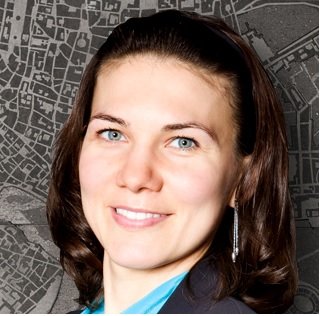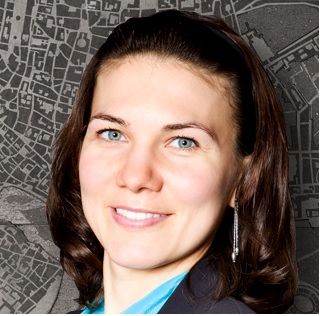TRUST IS ESSENTIAL
Published by Gbaf News
Posted on July 15, 2014
5 min readLast updated: January 22, 2026

Published by Gbaf News
Posted on July 15, 2014
5 min readLast updated: January 22, 2026

By Svetlana Ryabokon, Head of Wealth Structuring and Fiduciary Services of Oracle Capital Group
“An individually chosen Trust provides for the effective protection of assets”
Most wealthy people have a broad experience of life and have independently built up successful businesses. The primary concern of all those who have gradually created their wealth is how to preserve and protect their assets from assaults by third parties. These attacks can come either from ex-business partners with whom they have had disputes; or from relatives, such as from a spouse during a marriage break-up.
In the long-term perspective having an effective asset protection structure in place is fundamental. This structure should help to consolidate and control the assets; and also guarantee the owner confidentiality and protect information about the assets from journalists and competitors.

Svetlana Ryabokon
A Trust is a flexible and effective structure of holding and management which provides maximum protection for the assets involved. The concept of a Trust developed from a desire to have divided ownership of an asset, when one individual owns a property from which another individual also benefits. When a settlor establishes a Trust, he gives up control over his assets in favor of trustees, whose professional obligations are to own those assets in favour of the third parties: the beneficiaries. The settlor himself can also be a beneficiary.
Thus, de jure the assets transferred to the Trust cease to belong to the settlor; and therefore upon a claim from a third party (such as an unsatisfied business partner) he can rightfully declare that he no longer owns the property. The same idea lies behind the use of a Trust when defending one’s interests during divorce proceedings.
It is important to note that the decisions of foreign courts are not automatically upheld in many jurisdictions where the Trusts are established. In other words for settlement of a claim, it is necessary to go through the legal system of the country where the Trust is registered. It is not enough simply to present the decision of the court where the matter was adjudicated (generally, this will be the place of residence of the plaintiff or the respondent; or the place where the asset is located.)
Trusts can provide efficient consolidation of a number of different assets. This can be especially useful for people whose business includes a number of companies, but where there is no centralized system for their management and control. The settlor can retain certain powers over the trustees and businesses involved in the Trust structure; whilst at the same time providing confidentiality for himself and his family members. This is because according to the Trust documentation the trustees will be the formal owners of the assets, so it is they who will be mentioned in the public documents.
Many situations can be provided for with a Trust and the risk of loss can be minimized in the event of a change in circumstances. For example, in my practice I had a case when a wealthy client became disabled as a result of a stroke. All of his assets were registered in the names of third parties, mostly nominees; that is, people who were not close to him. Moreover, they had signing powers in the banks and when the accounts were opened they were all introduced as legal holders of these assets. The client had chosen this archaic method in order to protect himself from information disclosure. But as a result, the assets were not properly consolidated or structured. The client’s wife had no information about her husband’s business and bank accounts. As a result, she had to pay for expensive medical treatment and the education of their children, as well as supporting the children’s grandparents without any of her husband’s money being transferred to her. The only asset registered in the wife’s name was the family home and a joint account for their everyday expenses. A cautionary tale indeed.
If this client had firstly established a Trust and placed at least a part of his assets in it; if he had then written a proper Letter of Wishes and indicated who the beneficiaries were – he himself being one of them; and if he had made provision for automatic payments for the medical treatment, education and other vital expenses, his family’s life would have been a lot easier and he could have protected the family capital.
About Oracle Capital Group
Founded in 2002 and headquartered in Luxembourg, Oracle Capital Group provides comprehensive, tailored and confidential services for high-net-worth individuals and their families, including investment advisory (through their offices in Switzerland and the Bahamas), wealth structuring and asset protection, asset financing and insurance, legal case management, property development, and concierge services. Oracle Capital Group has 7 offices (London, Luxembourg, Geneva, Nassau, Moscow, Almaty and Limassol) and employs over 100 staff worldwide. www.orcap.co.uk
Explore more articles in the Investing category











